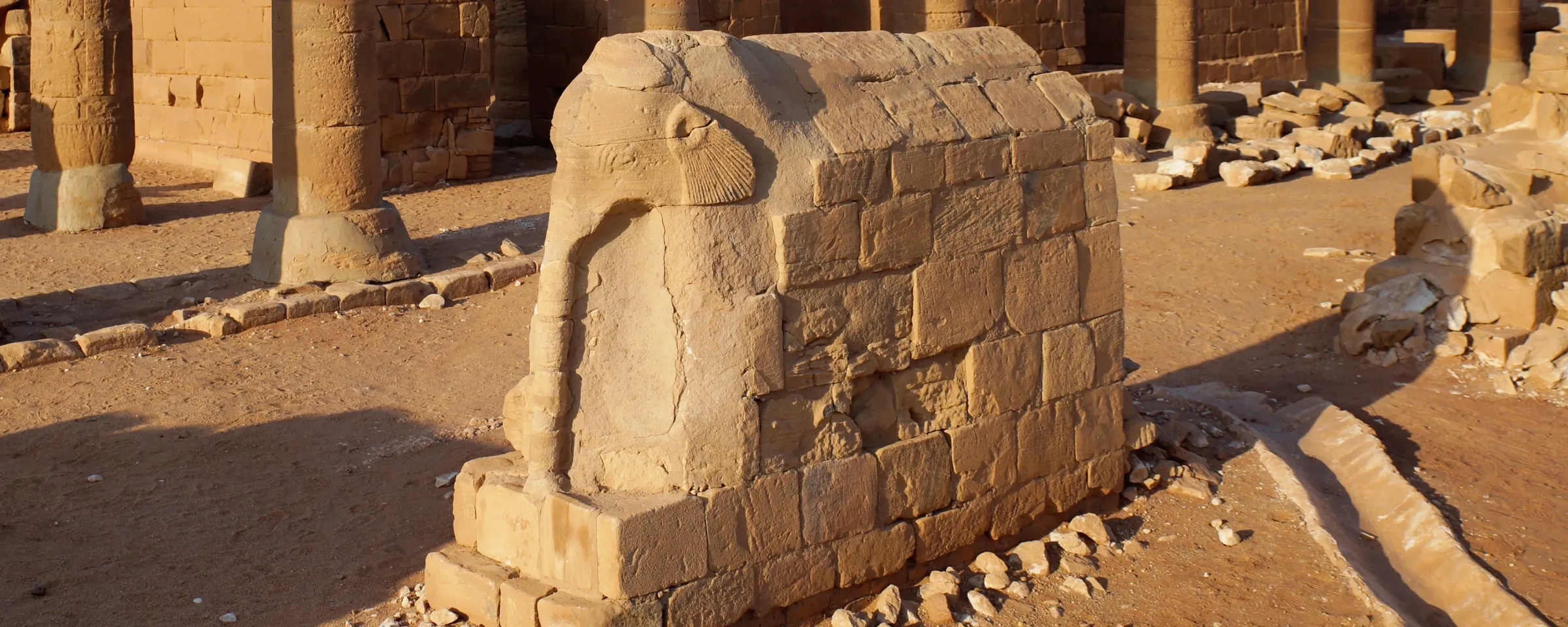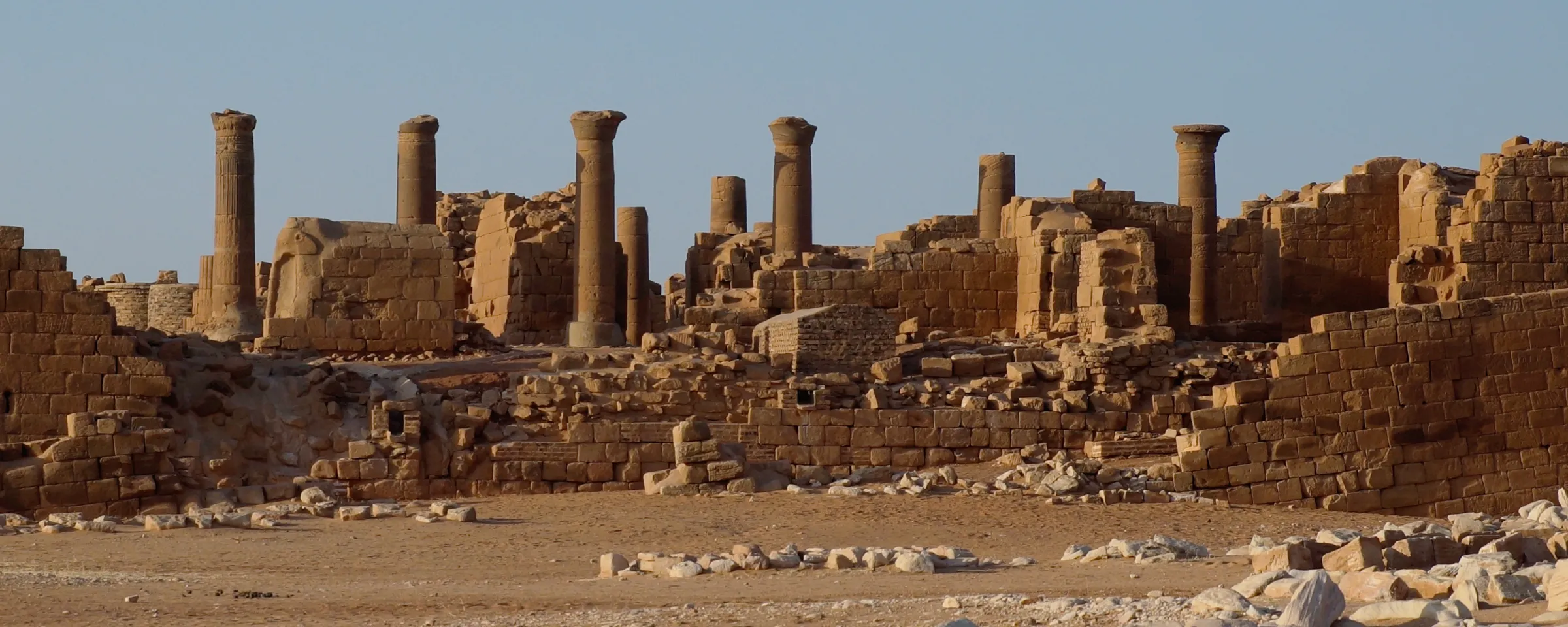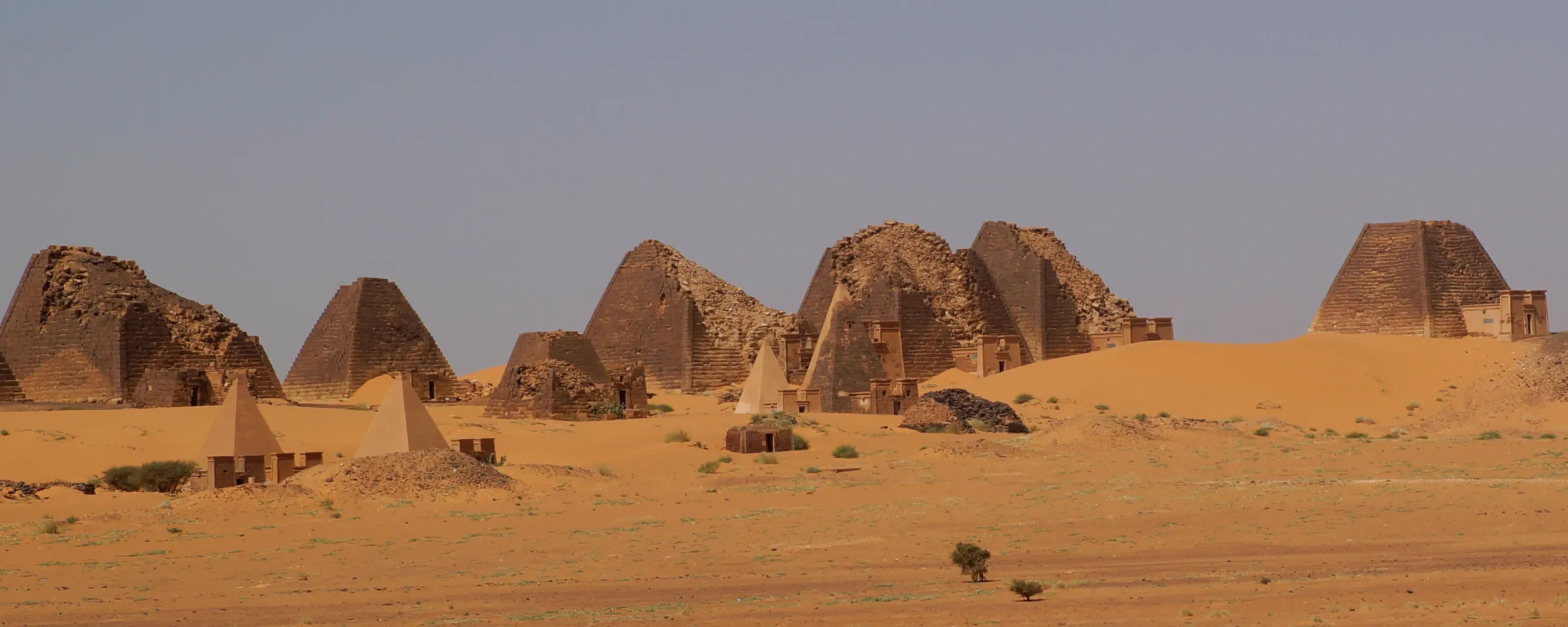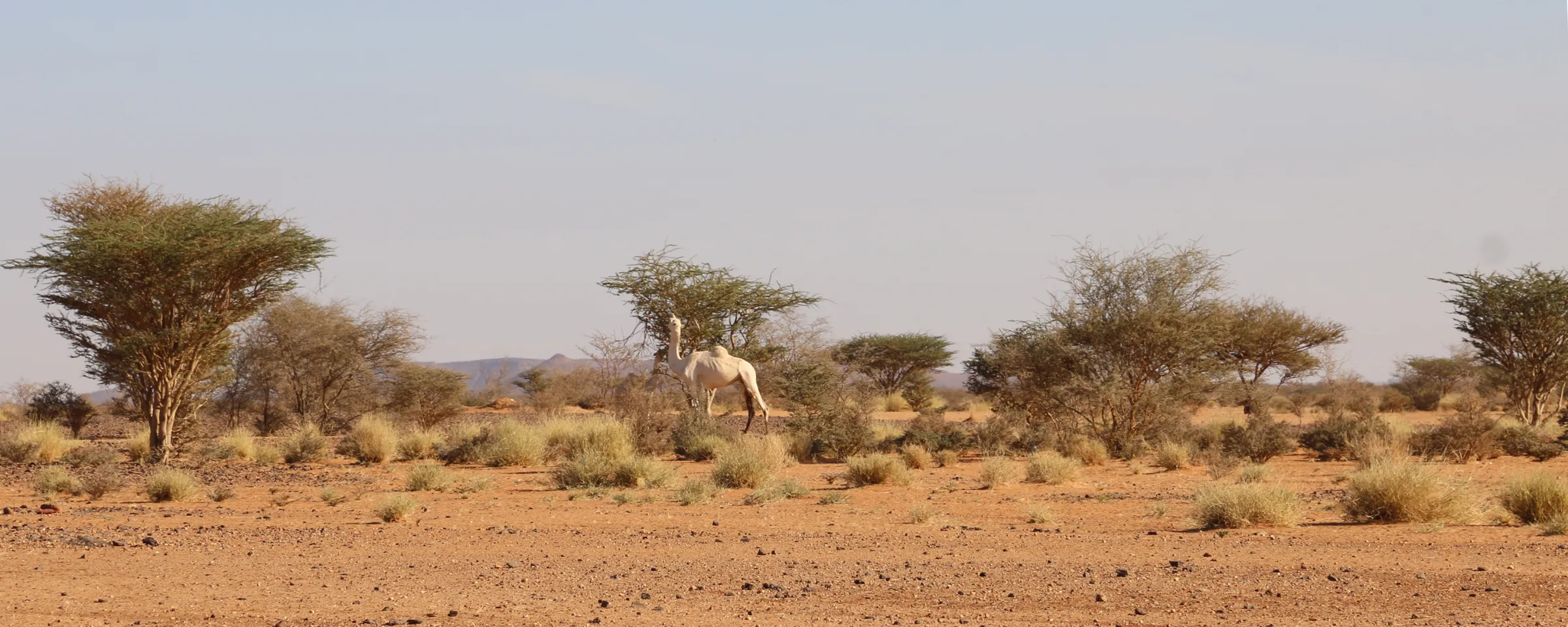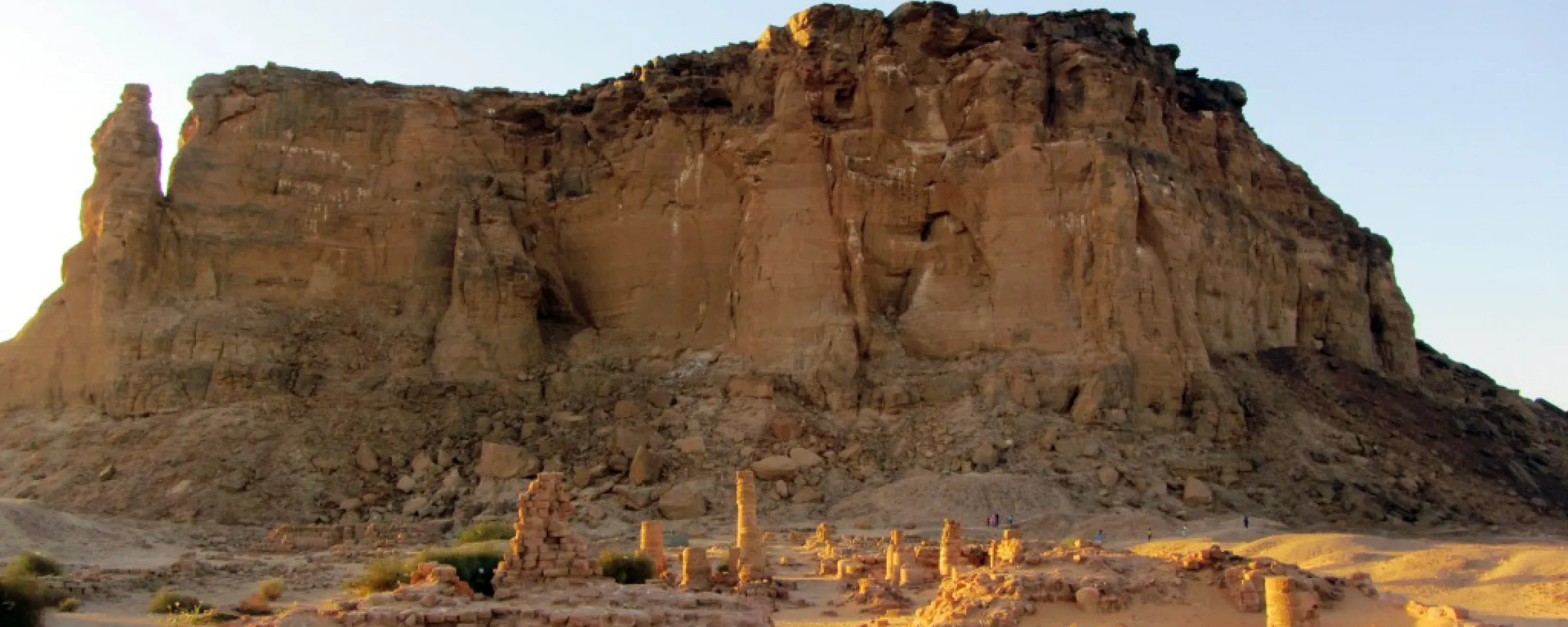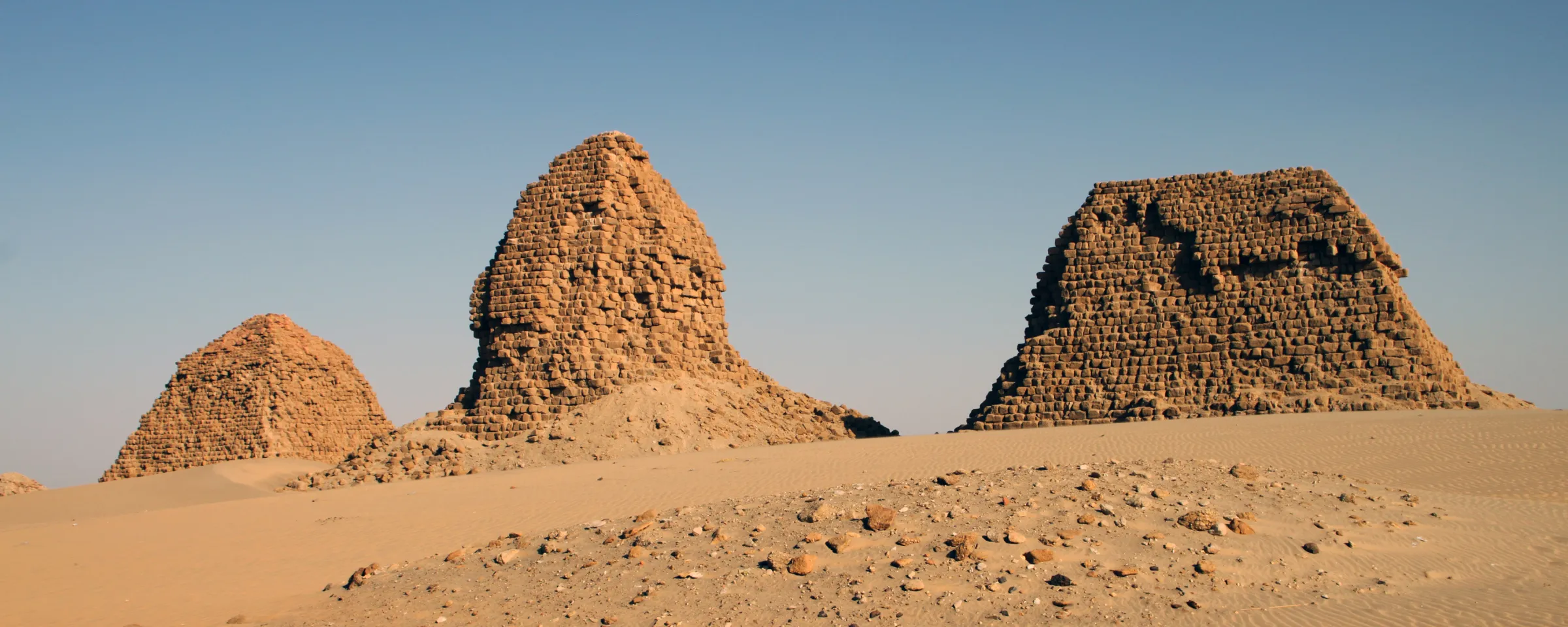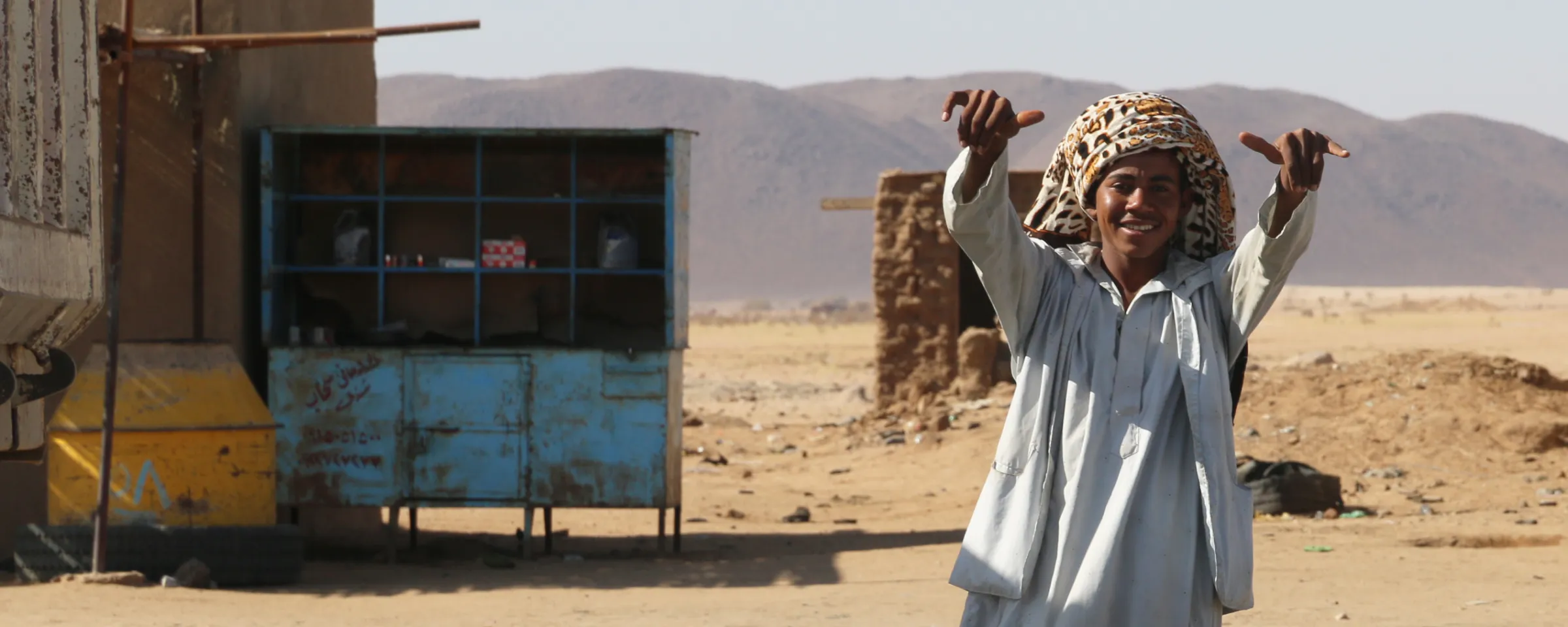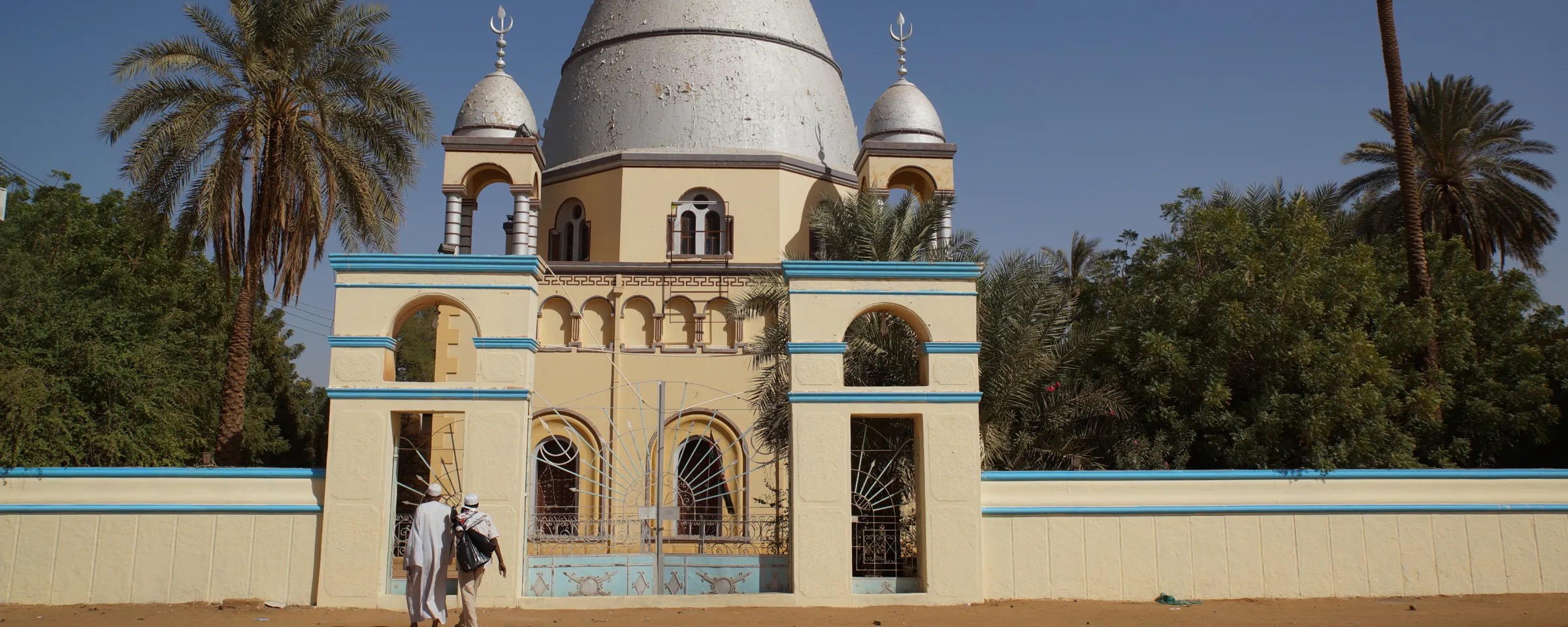Sudan kompakt
Pyramiden und Tempel im kuschitischen Kernland
Diese spannende Kurzreise führt Sie zu den Hauptsehenswürdigkeiten im Sudan, darunter den UNESCO-Weltkulturerbeplätzen von Meroe und Jebel Barkal. Reisen Sie entlang des Nil und durch die Wüste: Pyramidenfelder, Felsgräber und beeindruckende Tempel warten auf Sie! Lernen Sie mehr über die einzigartige Geschichte des Landes und genießen Sie die sudanesische Gastfreundschaft. Erleben Sie beeindruckende Landschaften und den sternenübersäten Himmel über unserem Wüstencamp. Das ist die perfekte Reise für diejenigen, die den Sudan zum ersten Mal besuchen und über ein begrenztes Zeitbudget verfügen.
- Reiseleitung durch einen professionellen Sudanarchäologen
- maximal 11 Reisende
- Fahrt im geländegängigen Fahrzeug mit maximal drei Passagieren
- Entdecken Sie antike Pyramiden, Tempel und Gräber
- Besuchen Sie die beiden UNESCO-Weltkulturerbestätten des Sudan
- Erleben Sie den Suk von Omdurman und die Sufi-Zeremonie der tanzenden Derwische
- Genießen Sie die sudanesische Gastfreundschaft
Arrive in Khartoum on an early morning flight (usually between 0100 and 0300). Transfer to the hotel. A room is booked for you so you are able to get some rest and freshen up.
After a late breakfast, take a tour through Sudan's vibrant capital city. Visit the National Museum which houses three temples rescued from Lower Nubia during the 1960s UNESCO campaign.
Cross the famous confluence of the White and the Blue Nile and explore Omdurman, the former capital, which holds important testimonies to the country's colonial and postcolonial past, including the Mahdi Tomb – Sudan's national monument. Enjoy dinner in a typical local restaurant. (B, D)
Journey northward, past the rocky formations of the Sixth Cataract, into the semi-desert landscape of the Butana. Visit Naga, one of the major cities of ancient Kush with several superbly preserved temples. Walk through an avenue of rams to the temple to Amun, built by King Natakamani about two thousand years ago. Watch the present-day nomads who water their animals at an ancient well right in the centre of the site.
Continue to Musawwarat es-Sufra. Professor Claudia Näser directed the German mission undertaking archaeological research and conservation work at the site from 2005 to 2015, conducting excavations at its main monument, the enigmatic Great Enclosure, and restoring the roof of the nearby Lion Temple. To tour the site with a scientist who has been taking part in its exploration is a unique opportunity indeed.
Visit a local nomad camp for tea and spend the first night camping in this amazing landscape under a star-strewn sky. (B, L, D)
Another highlight of the trip is the visit to Meroe, the capital of the Kushite Empire in its later days, from the third century BC to the fourth century AD. In 2011, the site was inscribed in the UNESCO World Heritage List as part of the serial property "Island of Meroe", together with Naga and Musawwarat.
Explore the Royal City of Meroe which was excavated in the early 20th century and boasts several temples, palaces and examples of fancy elite architecture. Further temples and burial grounds can be seen nearby.
The two Royal Necropoleis are located 5 kilometres away from the Nile in a magnificent landscape setting on two hills partly covered by yellow sand dunes. They comprise over fifty pyramids, some of them in perfectly preserved condition, others restored.
Overnight at the Meroe Permanent Tented Camp. (B, L, D)
Continue the journey along the Nile and cross to its western bank. From there it's on through the breath-taking landscape of the Bayuda Desert, the area bounded by the Great Bend of the Nile. Stop for photographs and to collect firewood for the night.
Camp will be set up near the remains of the medieval monastery of Ghazali. Abandoned in the 11th century AD, its installations, including two churches, monk cells as well as a dining area and a kitchen tract, are still very well preserved. (B, L, D)
Visit Nuri, the royal necropolis which housed the burials of the Kushite kings before their move to Meroe. Nuri was founded by Taharqo, who ruled over Egypt and Kush as the third king of the 25th Dynasty. His pyramid is the largest in Sudan, the sides measuring 52 metres in length at the base.
Cross the Nile to reach Karima and its famous landmark, Jebel Barkal. This widely visible mountain was believed to be the abode of the god Amun by both Egyptians and Kushites. The New Kingdom pharaohs founded a town, called Napata, and built a temple of Amun at the foot of the mountain. This temple was rebuilt and enlarged several times, to eventually become the largest temple in the Middle Nile valley.
Two nearby pyramid fields date from the Meroitic period, when some kings and queens decided to build their tombs in this sacred landscape.
Jebel Barkal and the sites of the Napatan region were inscribed in the UNESCO World Heritage List in 2003.
Spend the night in the Nubian Resthouse, a charming boutique hotel on spacious well-kept grounds. (B, L, D)
Explore the pleasant market of Karima and the monuments of Jebel Barkal at your leisure.
Later in the day, visit Kurru, the ancestral cemetery of the Kushite rulers who came to rule over Egypt as the 25th Dynasty. The earliest tombs in this necropolis were built as tumuli, i.e. mound graves, while later generations erected Egyptian-style pyramids. Some of the underground burial chambers preserve rich painted decoration.
Take a detour to the petrified forest and the late antique tumulus field of Zuma.
Overnight as on the previous day. (B, L, D)
Return to Khartoum on a tarmac road through the Bayuda Desert, with a stop at Tamtam, Sudan's most famous roadhouse.
Explore the souk of Omdurman, said to be one of the largest markets in Africa, and take the opportunity to shop for souvenirs. Proceed to Hamad al-Nil's tomb where the Sufi ceremony of the Whirling Dervishes starts one hour before sunset (on Fridays only).
Enjoy the hospitality of your Khartoum hotel and your good-bye dinner at the hotel or in one of Khartoum's specialty restaurants. (B, L, D)
